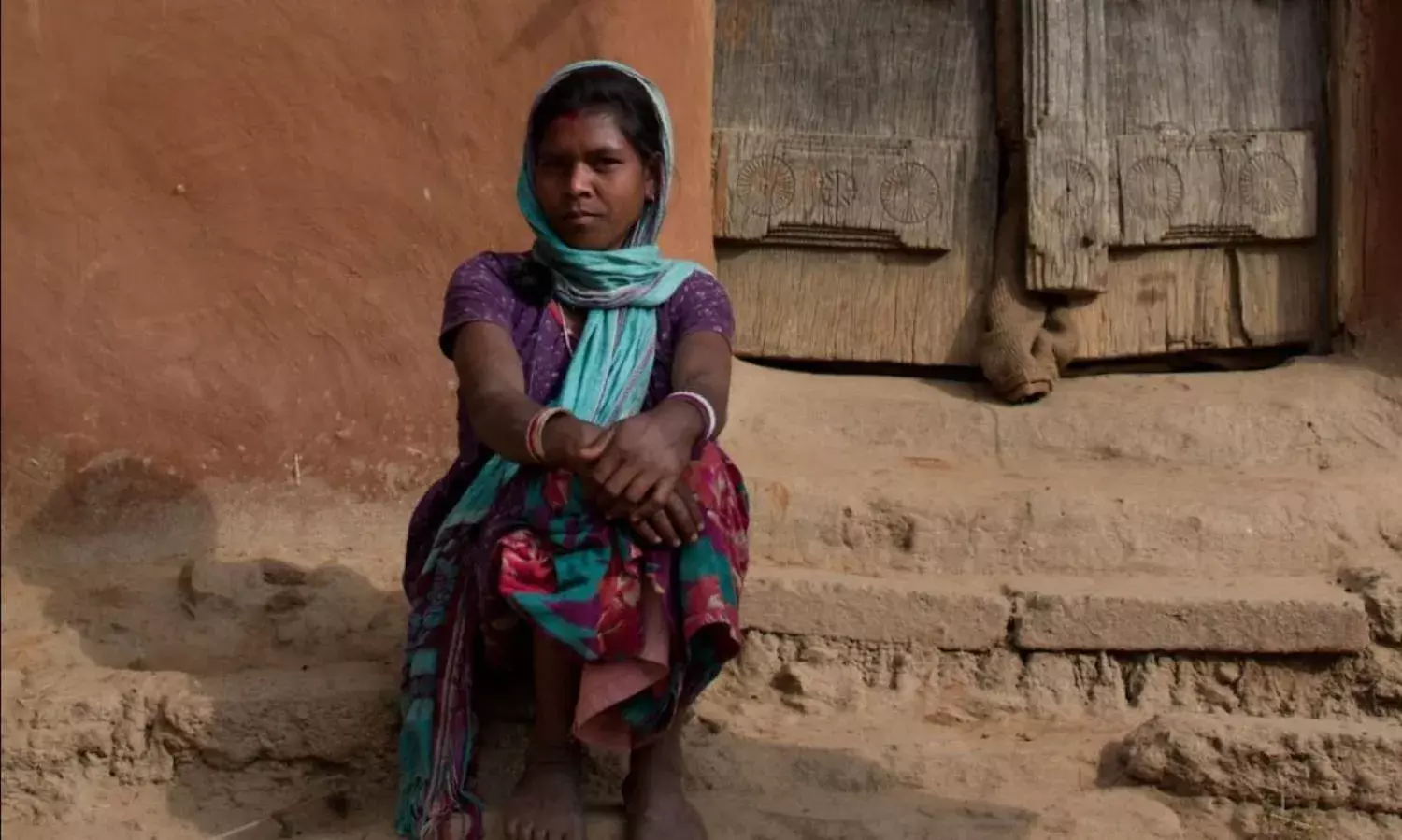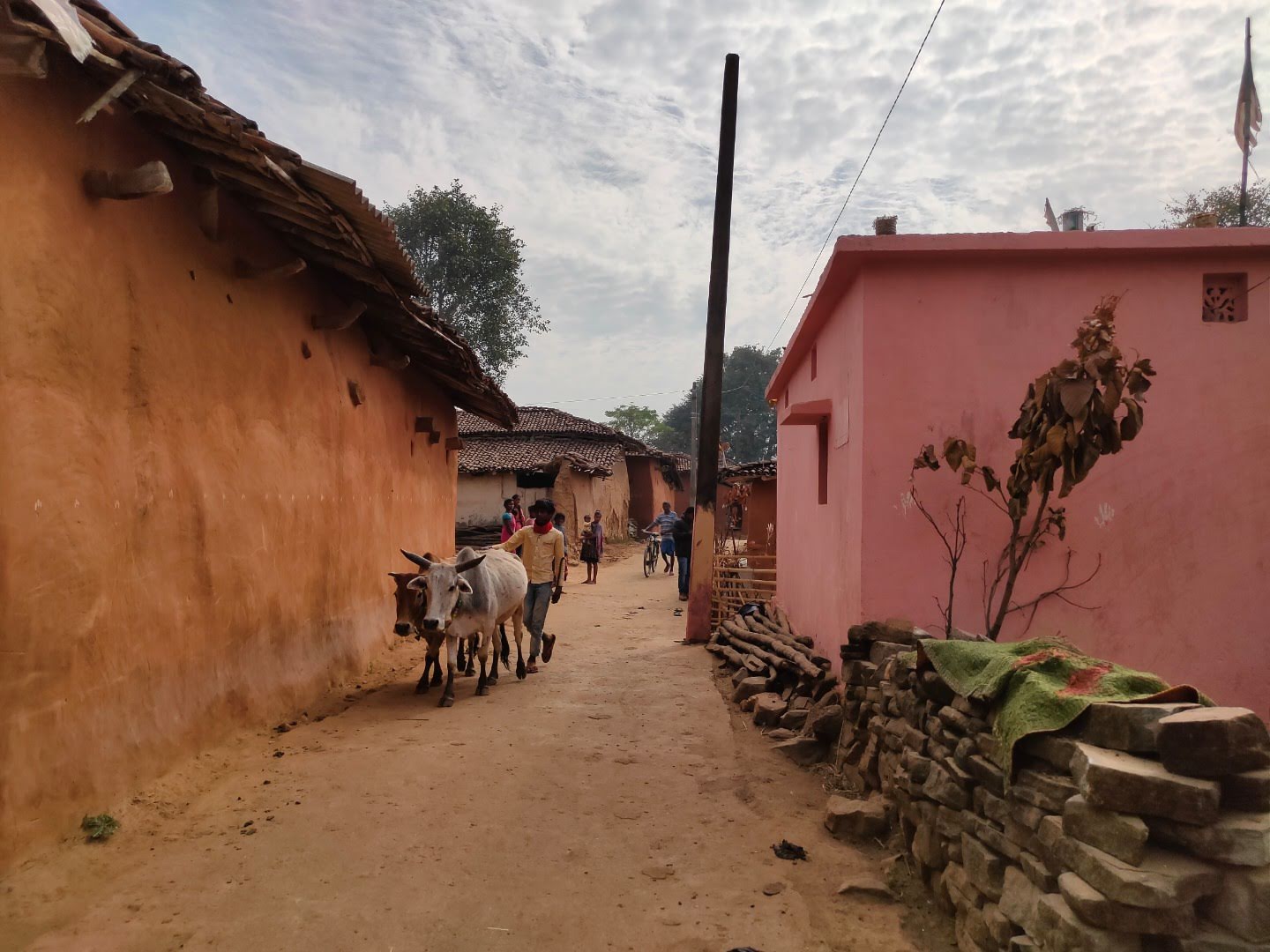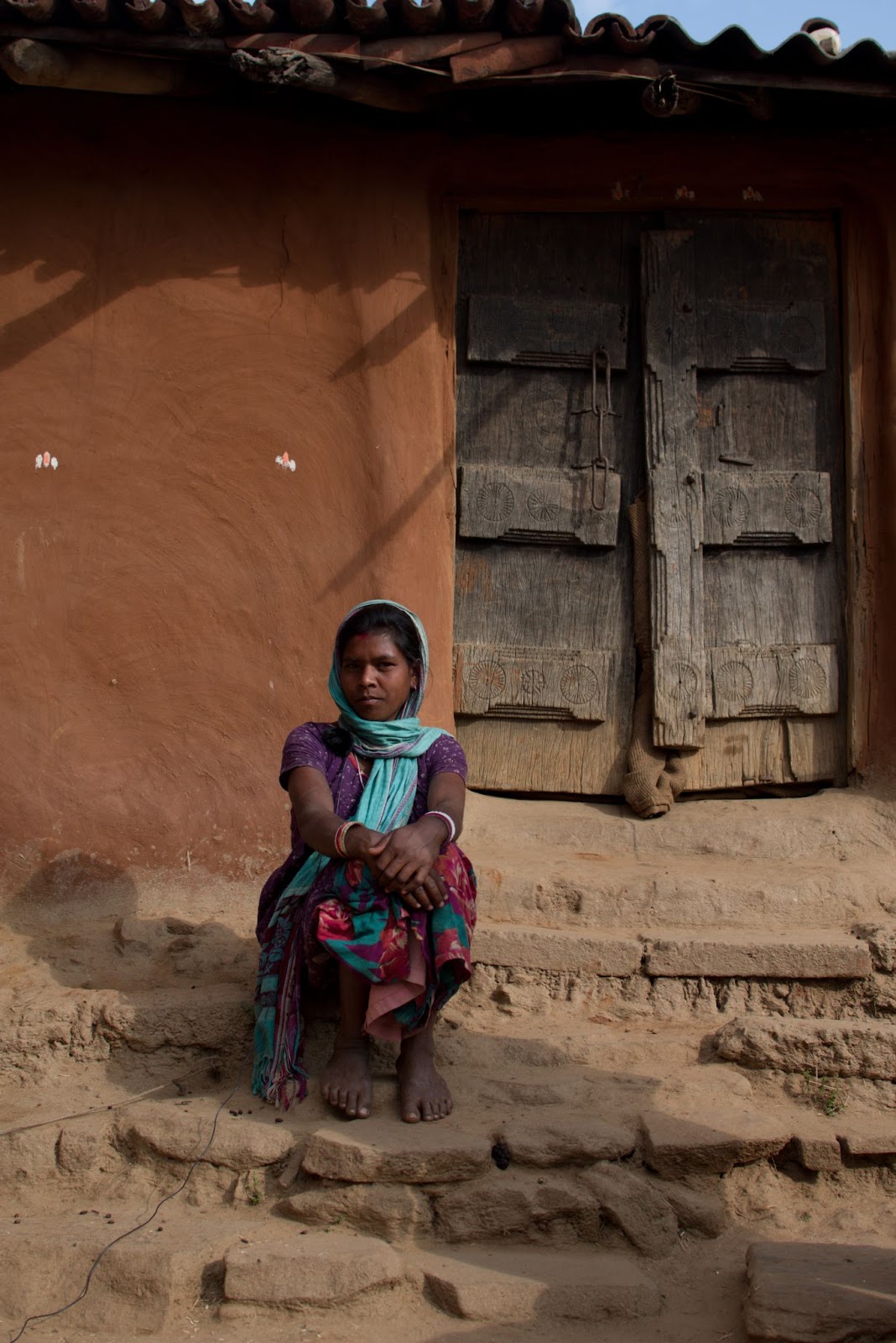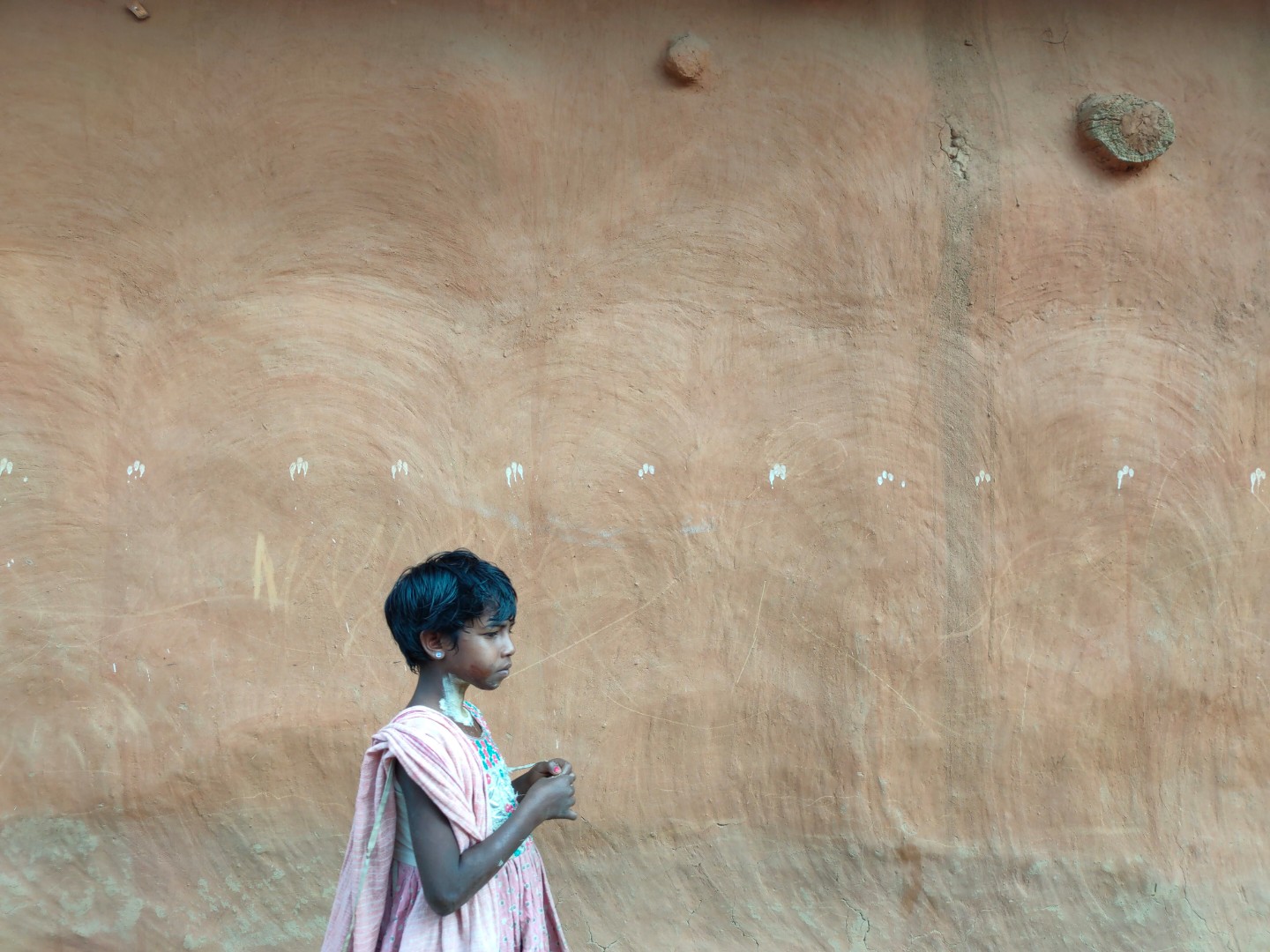The Monthly Curse!
Women use ash, dried grass, and even dried cow dung to soak menstrual blood

For generations the women of Jonha, a village in the outskirts of Ranchi, Jharkhand, have used ash, dried grass, and even dried cow dung to soak menstrual blood. Even now, many women in Jonah have never used a sanitary pad in their entire life. These women are from Indigenous communities. Most of the men and women are involved in small trades, agricultural workers, or are daily wage earners.
 Jonha village is 40 kilometres away from Ranchi
Jonha village is 40 kilometres away from Ranchi
People here do not have concrete toilets in their houses nor do they have regular running tap water. Most of the villagers still go to defecate in the open. There are a few common toilets which do not have running water, and it is unsafe for women to go alone to defecate in the open late at night.
Some Non Governmental Organisations (NGOs) come here to distribute the sanitary pads but this is rare. There is a shop near the village that sells sanitary pads but not at the subsidised price fixed by the government. Therefore, the women here are forced to use ash, dried grass, dried and mashed cow’s dung, formed like a ‘pad’. “I’ve never heard of the word ‘periods’ in my life,” exclaimed a woman from the village. She recalled that she was unaware about menstruation till she reached puberty and got her first period. She was then asked to use a cloth pad, stay away from the kitchen, and sleep on the floor till she stopped bleeding. “We now use the ash that is left in out stoves to make pads,” she added.
 A woman of Jonha village
A woman of Jonha village
Another woman said that “some government people come during election time, provide some help and never come back”.
According to the National Family Health Survey (NFHS) data, 83 percent women in Jharkhand continue to “use malpractices while they menstruate”. According to a UNICEF study undertaken in Jharkhand in 2015, 32 percent women said they knew nothing about menstruation before its onset. Eighty percent of females of menstruating ages did not know the importance of washing menstrual cloth pads properly to make them germfree.
Mangesh Jha, a women's rights activist based out in Jharkhand, said, “now when people are talking about gender equality and women empowerment, the fact that these women do not even feel hygienically empowered in their own house is really alarming”adding, “in Dhanbad and Ramgarh region where the labourers work in the coal mines, women are forced to use coal dust to form a pad. ''
Government schemes like Menstrual Hygiene Scheme (MHS), Free Pads for India (FPI) are ineffective in remote places such as these villages in Jharkhand. There is no awareness of menstrual hygiene even among adolescent girls, and no access to good quality sanitary pads. In 2020 Prime Minister Narendra Modi launched a 12,000 crore scheme to ensure access to sanitary napkins across India at a cost of one rupee. They were to be made available at Janaushadhi stores set up by the government under PM Bhartiya Janaushadhi Pariyojana (PM-BJP). However, there is no Janaushadhi centre near these villages, nor are the villagers aware of the government schemes.
Under the Swachh Bharat Abhiyaan some toilets have been built here but people face hardships if they want to use them. “These common toilets are not accessible during the night, especially for the women,they find it unsafe to walk the distance to use it, so they prefer open defecation”, said Jha. According to him, “Jharkhand has a scarcity of water, and maintaining the toilets is a challenge.”
“This poses a serious threat to the health of the women here who have an increased risk of getting ovarian cancer. by this. It can impact the reproductive tract and cause Reproductive Tract Infection (RTI) and Urinary Tract Infection (UTI)”, said Gynaecologist, Neelam Choudhary. She added that women also are more vulnerable to anaemia
 Jharkhand has a high percentage of anaemic adolescent girls
Jharkhand has a high percentage of anaemic adolescent girls
After several lockdowns imposed by the government during the pandemic the condition of women have only worsened, and they are still not able to get sanitary pads. An NGO named Motivate which works on empowering women by distributing sanitary pads and spreading awareness about menstrual hygiene, said that these need to be made free, and be easily accessible to everyone, especially in remote areas.



